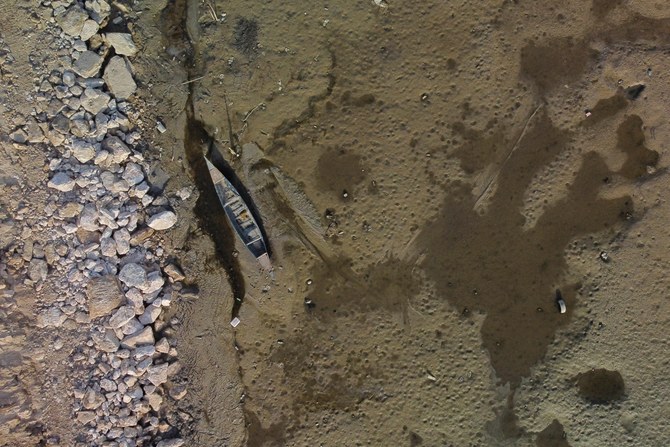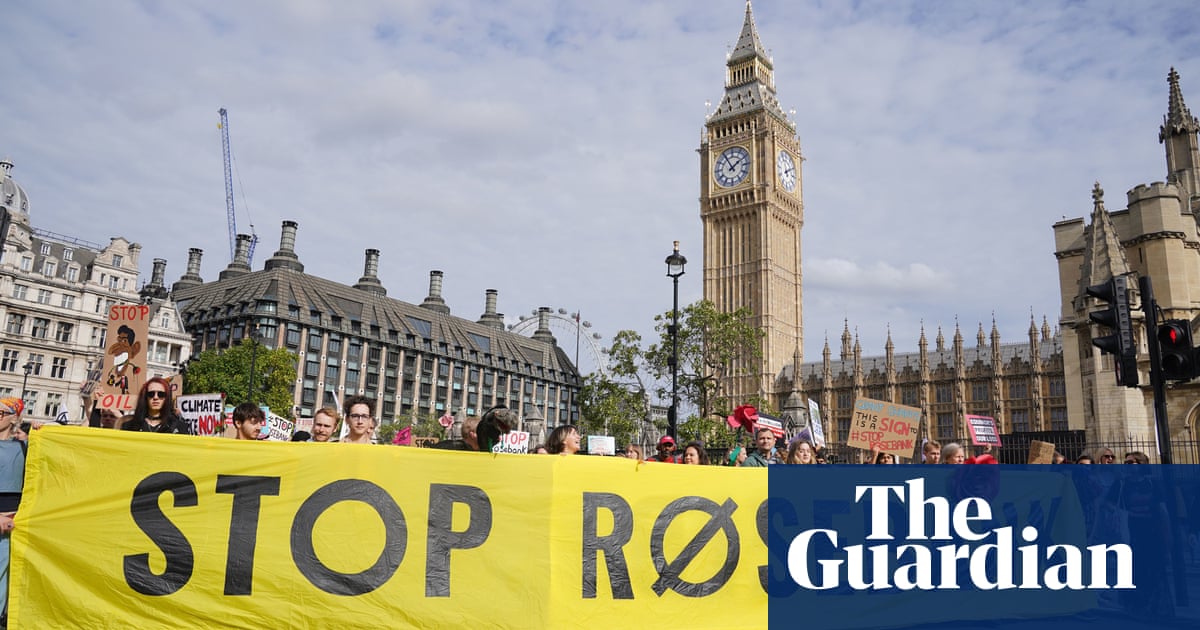
Rich countries must sign a “historic pact” with the poor on the climate, or “we will be doomed”, the UN secretary-general, António Guterres, has warned, as a deepening gulf between the developed and developing world has put climate talks on the brink.
The stark warning comes as world leaders start to gather for the UN Cop27 climate summit, which opens on Sunday in Sharm el-Sheikh, Egypt, but which even the hosts admit will be the most difficult in at least a decade.
Cop27 is taking place amid the worst geopolitical tensions for years, over the Ukraine war, a spiralling global cost of living crisis, and deepening economic gloom.
But the gulf must be bridged if humanity is to have a hope of avoiding the worst ravages of climate breakdown, Guterres said.
“There is no way we can avoid a catastrophic situation, if the two [the developed and developing world] are not able to establish a historic pact,” he told the Guardian in an interview on the eve of the summit. “Because at the present level, we will be doomed.”
Developed nations have failed to cut greenhouse gas emissions fast enough and failed to provide the money needed for poor nations to cope with the resulting extreme weather. The glaring climate inequality between the rich world, which is responsible for most emissions, and the poor, which are bearing the brunt of the impacts, is now the biggest issue at the talks, according to Guterres.
“Present policies [on the climate] will be absolutely catastrophic,” he said. “And the truth is that we will not be able to change this situation if a pact is not put in place between developed countries and the emerging economies.”
Guterres has drawn criticism from some quarters for his increasingly stark rhetoric on the climate crisis, warning of “collective suicide”, “carnage” to come, and “code red” for humanity.
But he insisted he would refuse to water down his apocalyptic language, as the rapid acceleration of the climate emergency was now so dire.
“For the simple reason that we are approaching tipping points, and tipping points will make [climate breakdown] irreversible,” he said. “That damage would not allow us to recover, and to contain temperature rises. And as we are approaching those tipping points, we need to increase the urgency, we need to increase the ambition, and we need to rebuild trust, mainly trust between north and south.”
Tipping points are thresholds within the climate system that lead to cascading impacts when tripped. They include the melting of permafrost, which releases methane, a powerful greenhouse gas that fuels further heating, and the point at which the drying Amazon rainforest switches from being an absorber to being a source of carbon, which scientists fear is fast approaching.
“We are getting close to tipping points that will create irreversible impacts, some of them difficult even to imagine,” he warned.
He also called for the US and China to rebuild their fractured relationship, which has plunged to new lows this year, but which Guterres said was “crucial” to climate action. “It needs to be re-established because without those two countries working together, it will be absolutely impossible to reverse the present trends,” he said.
Guterres, along with the Egyptian government, will convene world leaders at the start of the Cop27 summit to try to rescue an unpromising set of climate negotiations. This year has seen geopolitical relations riven by the war in Ukraine, along with soaring fossil fuel prices and food price increases that have created a cost of living crisis around the world, as well as failures by governments – including the UK – to follow up on promises made last year at the Cop26 summit in Glasgow.
The pact Guterres has in mind would require big economies to do more on cutting greenhouse gas emissions, and to provide poor countries with a financial lifeline. This was needed to restore “trust”, he said.
Lack of trust, in the climate negotiations, means a lack of money. Rich countries were meant to provide at least $100bn a year by 2020 to help poor countries cut their greenhouse gas emissions and adapt to the impacts of the climate crisis.
But the target has repeatedly been missed, and will be missed again this year, while poor countries are already suffering climate disaster, including record floods in Pakistan and record drought in Africa.
A “historic pact” between rich and poor would involve clear new pledges on finance and for rich countries and emerging economies to strengthen their emissions-cutting targets, Guterres said.
It would also require progress on the vexed question of “loss and damage”, which is likely to be a flashpoint at Cop27. Loss and damage refers to the most devastating impacts of extreme weather, which it is impossible to adapt to, and poor countries want a funding mechanism that would allow for the rescue and rehabilitation of countries whose physical and social infrastructure has been destroyed by climate-related disaster.
“The question of loss and damage has been postponed, and postponed, and postponed,” said Guterres. “We need to make sure that there is an assumption of responsibilities and that there is effective support to the countries suffering the most dramatic levels of loss and damage.”
Rich countries had managed to raise $16tn to deal with the Covid-19 pandemic, he pointed out. But for poor countries, there had not even been debt relief to help them with the compounded impacts of Covid, cost of living rises, climate and the strong dollar, which has made their repayments more expensive.
“There is a sense of frustration [in the developing world] that is real and that deserves a response,” he said. He has called in recent months for a windfall tax on the bonanza oil and gas companies have enjoyed, a call he will repeat in Sharm el-Sheikh.
At last year’s summit in Glasgow, countries agreed to focus on limiting global temperature rises to 1.5C above pre-industrial levels, but recent UN reports have shown that current policies would raise temperatures by about 2.5C.
Guterres said there was only a slim chance of holding to the target. “We still have a chance but we are rapidly losing it,” he said. “I’d say the 1.5C is in intensive care, and the machines are shaking. So either we act immediately and in a very strong way, or it’s lost and probably lost for ever.”












